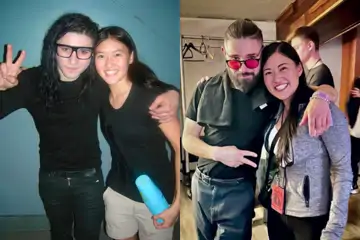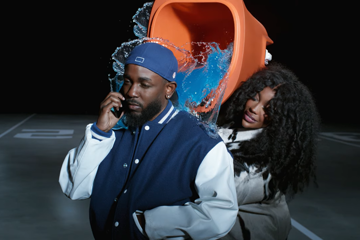Cinema history is full of narratives of penances served and artistic rebirths, and Ben Affleck has become a prime 21st-century exemplar for those who ascribe to them. After having the world at his feet after the success of Good Will Hunting – the Oscar-winning bro-down for which he both co-starred and co-wrote – Affleck turned into a cheque-cashing leading man; starring in a succession of crappy pictures both monstrous and Miramax'd, all whilst being mercilessly mocked in the media for his affairs with Gwyneth Paltrow and Jennifer Lopez. Yet, when Affleck moved behind the camera – trading in his celebrity visage for the unglamorous anonymity of behind-the-scenes toil –he left behind the froth and idiocy of Kevin Smith jerk-offs and super-hero movies, getting determinedly 'gritty'. First came 2007's Gone Baby Gone, a cop-chases-a-killer descent into the darkness of the 'driven', torn from the pages of Dennis Lehane; then The Town, a rough-and-tumble tale of smalltime crims with big dreams, desperate to rise above their station. Both were set in Boston, and, to me, played like a bunch of celebrity actors trying on silly Southie accents and low-rent personae; but, to the Hollywood watchers, were somehow seen as grim, grimey, grainy, uncompromising and 'authentic' pictures; amounting to an artistic penance served by a man from this same Irish-Catholic town, apologising for his past cinematic sins. This growing, groomed narrative has crested with the release of Affleck's third directorial effort, Argo, in which he serves as director, producer, and leading man. Unlike his crimey prior pictures, this is a bold piece of old Hollywood entertainment, in which nationalism, foreign policy, and the magic of movies come together in a singular act of white-knuckle chutzpah.
It doesn't start out that way; instead, the film begins with an artfully-mounted, utterly-unsentimental mixed-media prologue in which the turbulent political history of 20th-century Iran – and imperial America's culpable involvement thereof – is established by the end of the opening credits. Then, Argo plunges into a street-level portrait; super-8 footage and digital approximations thereof used to summon a late-'70s civilians' milieu, people taking back the power; as revolutionary dissidents storm the American embassy in Tehran, demanding the exiled, deposed Shah be returned so he can be tried, tortured, executed. Instead, they take hostages; which sends us hurtling a continent away, into the corridors-of-power of a political espionage thriller, where the CIA work on how they're going to get six escaped American embassy workers, in hiding in the crawlspace of the Canadian ambassador, out of Iran. Which leads us to Affleck's battlin' CIA droog – separated from his wife, missing his son, life going up in a plume of cigarette smoke, down in the whiskey tumblers of drowned sorrows – who comes up with a cover to smuggle the six back home safe: the escapees are to pretend to be a film production crew, scouting locations for a post-Star Wars sci-fi opus.
Here, the tone shifts radically again, and suddenly the film is filled with fun and frivolity and froth, with Alan Arkin and John Goodman crackin' wise as old-style Hollywood pricks, bringing the production to life so as to provide plentiful cover. The tone lightens, the score blares feelgood, and the camera moves in mannerisms like half-remembered hijackings of Scorsese, stylised counterpoint turned into corporate-cinema cartoon. And, so goes Argo, a film that never has anything approaching coherence of form or theme, of style or composition. Affleck's direction is a grab-bag of established styles chosen with a brusque, mercenary quality; a CD-shuffle approach made all too manifest on the awful soundtrack, whose – for example – scary Middle Eastern music sounds like it was lifted from Team America: World Police, and whose inspirational orchestral swells on close (from the omnipresent Alexandre Desplat) sound like a parody of the music used to score bits of button-pushing emotional manipulation, like those Sportscenter stories about, like, kids with leukaemia playing baseball. That inconsistency of tone resounds throughout; as in the way moments of meticulous, era-centric set dressing jar against hints of revisionist postmodernism, like when the snarling sceptic (Scoot McNairy, simultaneously on screens in his breakout Killing Them Softly role, and soon appearing in new films by Steve McQueen, Gus Van Sant, Lynn Shelton et al; thus heading towards ensemble-movie 'It Guy' status) of the group mocks Affleck with a curt “is this the bit where we're supposed to say 'it's so crazy it just might work'?”
But the crazy plot does work, of course, and it's based on a true story, of course, and, oh fuck, of course, as the credits roll there's that cancerous trope where we see headshots of the actors and the real people they played side-by-side, which has officially become the worst cinematic cliché of the new millennium. That Affleck can't resist that temptation lets us know that, rather than serving penance, he's just shuffling the deck; moving from one Hollywood realm, crass commercialism, into another: the prestige picture. Based On A True Story is a sure Oscar shortcut, and Argo sometimes feels like Awards Show porn: given it's historical, political, and tense, yet all essentially a fluffy valentine to Hollywood ingenuity and the power of storytelling; the grand spy-movie ruse, of course, all a sweet symbol for the playacting of moviemaking itself. When coupled with its bumper box-office and bounteous critical bouquets, Argo seems like a surefire awards-season staple, thus completing the established media narrative of penances paid, and forgivenesses earnt. Yet, if we're to take the film on purely artistic terms, to me it feels like a minor piece of feeltense-then-good escapism. There's not a single frame in here that suggests Affleck, as filmmaker, is an actual real filmmaker; an auteur with a cinematic vision that lets us see the world in new ways. Compared to, say, George Clooney, whose directorial works all work with an established, sustained style, Affleck seems much more hack-like; no man born anew, but just the same old smiling, smarmy dickwad trussed up in a brand new beard.
Don't miss a beat with our FREE daily newsletter
Anton Corbijn: Inside Out begins, almost too perfectly, at a retrospective photography exhibition for its titular subject; an Amsterdam gallery surveying Corbijn's work over the years. The reason for the exhibition – and, in so many ways, the film itself – is spoken aloud by the attendant politician, whose introductory speech speaks of all those rock'n'roll celebrities Corbijn has photographed. There's a weird Dutch element at play in his words – a form of cultural cringe familiar to Australians; where the citizen from the tiny, low-lying land is seen to have 'made it' due only to his proximity to notable people from bigger, more famous, more important countries – that is interesting unto itself, but not interesting enough to be more than a passing, unintentionally-philosophical flicker in a film that is, really, just interested in all those rock'n'roll celebrities Corbijn has photographed. Sure, we learn about Corbijn's strictly-religious childhood, and, thus, the revelatory arrival of rock'n'roll in his world; and we watch the amiable Dutchman at work in an amiable portrayal of unglamorous craft yielding visionary results. Yet, as much as it tries to make these moments just days-on-the-job, when he's casually photographing U2, Lou Reed and Metallica et al, the raison d'être of the picture becomes clear. This is, really, a piece of PR puff-piece fodder aimed at the many fans of gargantuan rock bands who'll know Corbijn's name from rock photographs, rock videos, and rock biopics.
And, finally, ACMI is doing a sweet service to local cinephiles, showing Mark Cousins' 15-part, 15-hour valentine to the art of motion-pictures, The Story Of Film: An Odyssey, in both three-film sittings this week, and across an insane two-day binge next weekend. Working, almost decade by decade, through the 120-year history of cinema, Cousins makes stitched connections between filmmakers and eras, showing himself to be both devoted to film grammar and framing, yet also a genuine celluloid romantic, and, finally, a learned iconoclast. Rather than mythologising familiar classics long ago enshrined in the standard masculine, Hollywood-centric canon, Cousins has his own figures to champion, from Alexander Dovzhenko in Ukraine in the 1920s, to Yasujiro Ozu in Japan in the '50s, to Abbas Kiarostami in Iran in the '90s. In fact, Cousins goes beyond that, daring to suggest that the ignoble '90s were a cinematic Golden Age; not because of the rampant postmodernism of Tarantino et al, but because of the serenity, reality, and composition of Iranian and Taiwanese cinema, the ascetic austerity of the Danish Dogme devotees, and the new-millennial tensions and terrors of J-Horror and Michael Haneke. Given Cousins serves as lecturer in The Aesthetics Of World Cinema, it's no surprise that The Story Of Film effectively serves as a passionately-orated primer for any budding film student; a whole first-year syllabus compressed into an audience-friendly format. Cousins' passion is contagious, and when it's for a filmmaker for whom you feel the same – like, for me, when he explores the work of Robert Bresson and Tsai Ming-Liang – the series will play to ardent cinephiles like the most glorious kind of love-story.















